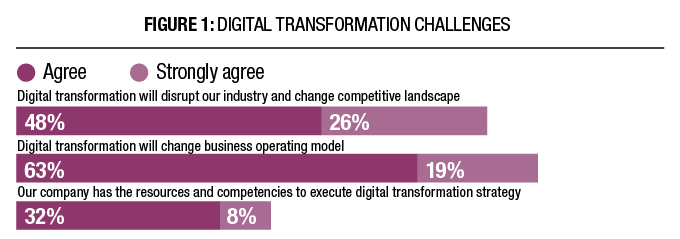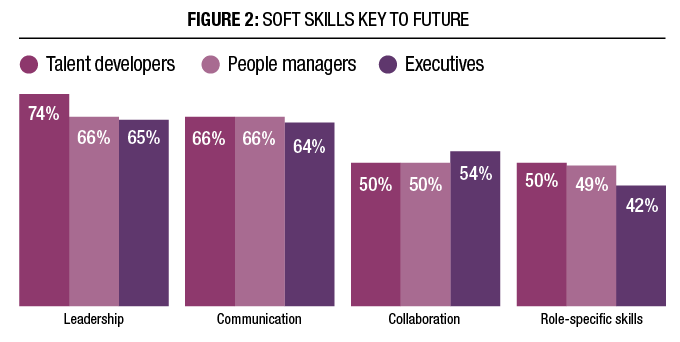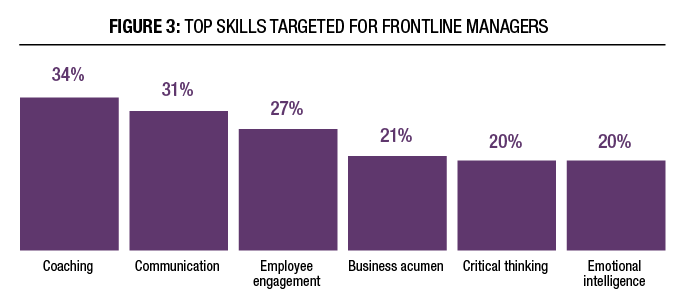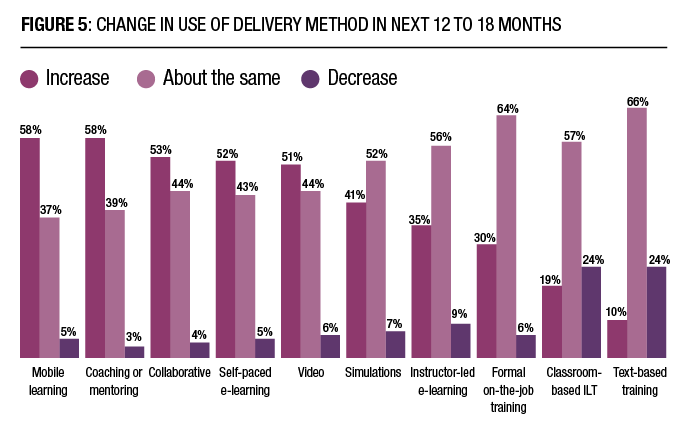The robots are coming! The robots are coming!
But as automation takes on the burden of tasks and entire jobs once carried out by people, it is putting more emphasis on the skills and abilities that remain, for the time being, the exclusive realm of humans.
 The ability to think critically, adapt to change and communicate effectively in a variety of situations are the currency of the new economy. According to a survey of 4,000 professionals conducted by LinkedIn Learning, the most important skills employees will need — and that learning organizations must develop — are leadership, communication and collaboration.
The ability to think critically, adapt to change and communicate effectively in a variety of situations are the currency of the new economy. According to a survey of 4,000 professionals conducted by LinkedIn Learning, the most important skills employees will need — and that learning organizations must develop — are leadership, communication and collaboration.
This emphasis on the soft skills at the heart of modern management is increasingly driven by the digital technology transforming many industries. Nearly three-quarters of executives surveyed by The Hackett Group, a consulting firm headquartered in Miami, expect digital transformation to disrupt their industry and change the competitive landscape (Figure 1). Eight in 10 expect it to fundamentally change how they operate.
That insight is not new. The past decade has seen an exponential increase in data processing power paired with increasingly sophisticated and user-friendly technology tools that have sped up the transition from the industrial economy to a primarily digital one.
What is newly apparent is the gap this rapid change has created in organizations’ ability to execute against their strategy. Only 40 percent of surveyed executives are confident their organization has the resources and competencies to execute their digital transformation strategy (Figure 1).

Understandably, that gap is making business leaders nervous. While there are technical skill gaps that will need to be filled if companies are to make the most of the digital tools and technology available to them, a majority of executives nevertheless see soft skills as the priority for employee development.
Among business executives, front-line managers and learning and talent developers alike surveyed by LinkedIn Learning, leadership, communication and collaboration are seen as particularly important to driving the change and transformation agenda (Figure 2).
That finding holds up when looking at the plans of learning executives. According to  a survey of the Chief Learning Officer Business Intelligence Board, coaching, communication and engagement were the top three skills targeted for development among managers (Figure 3). Business acumen, emotional intelligence and critical thinking rounded out the top six skills, reflecting the need for managers on the front line to be hands-on and people-focused.
a survey of the Chief Learning Officer Business Intelligence Board, coaching, communication and engagement were the top three skills targeted for development among managers (Figure 3). Business acumen, emotional intelligence and critical thinking rounded out the top six skills, reflecting the need for managers on the front line to be hands-on and people-focused.
The Chief Learning Officer Business Intelligence Board is a group of 1,500 professionals in the learning and development industry who have agreed to be surveyed by the Human Capital Media Research and Advisory Group, the research and advisory arm of Chief Learning Officer magazine.
According to that same survey, classroom-based instructor-led training remains the method of choice for nearly 6 in 10 learning executives surveyed when it comes to leadership development, often the place where most soft skill development takes place (Figure 4).
But when it comes to future plans, coaching, mentoring and mobile learning are getting the most emphasis (Figure 5). Nearly 60 percent of executives surveyed plan to step up their investment in those core areas in the coming year.
While the future is increasingly digital, it appears to be making the kind of skills that humans can uniquely deploy more, not less, important.
Mike Prokopeak is vice president and editor in chief at Chief Learning Officer magazine. He can be reached at editor@CLOmedia.com.















